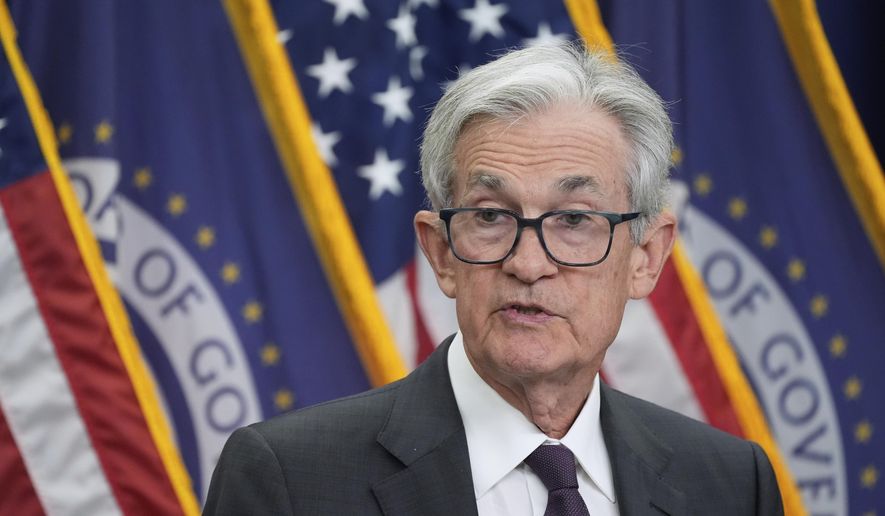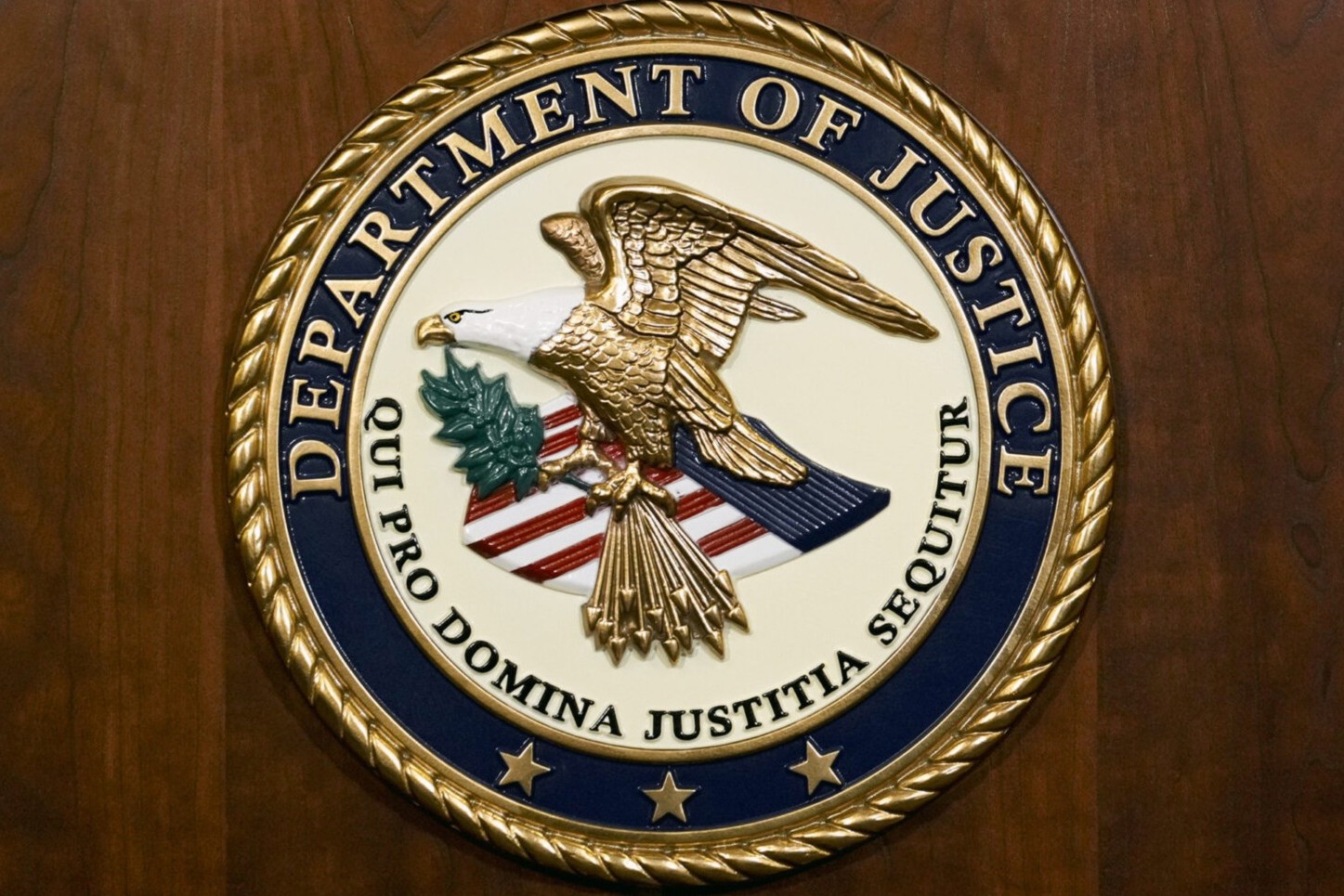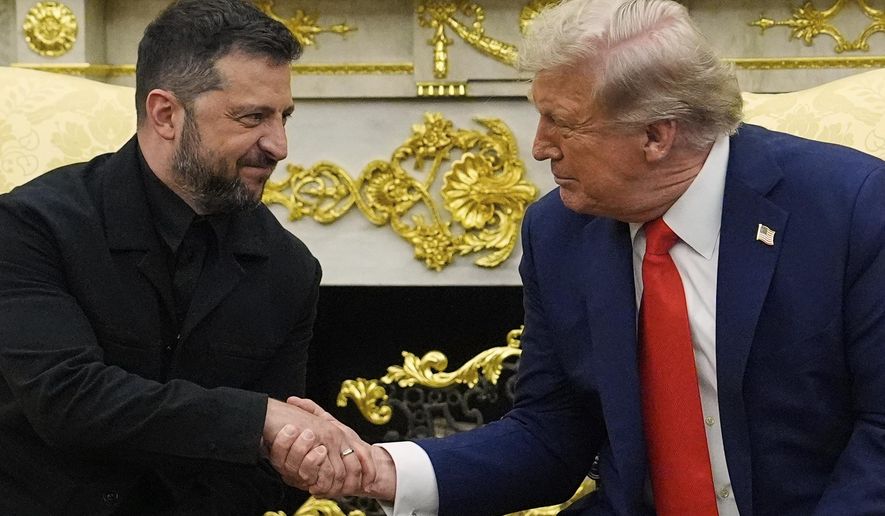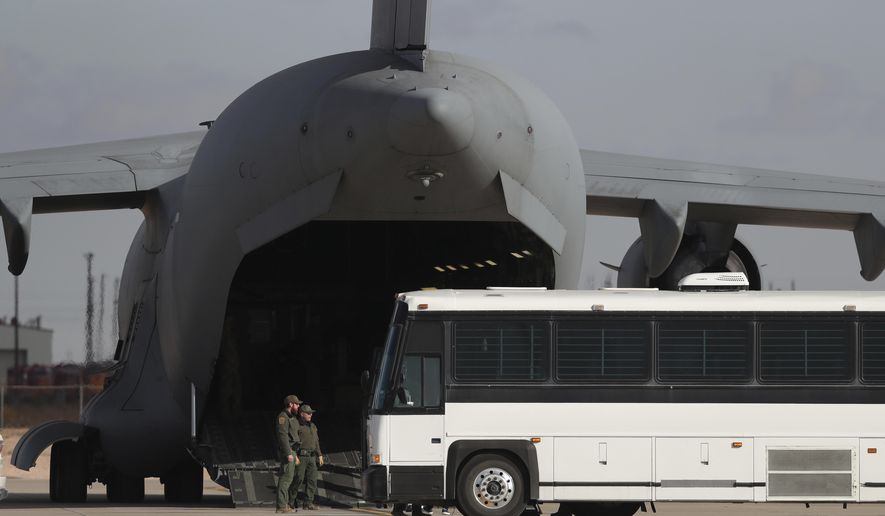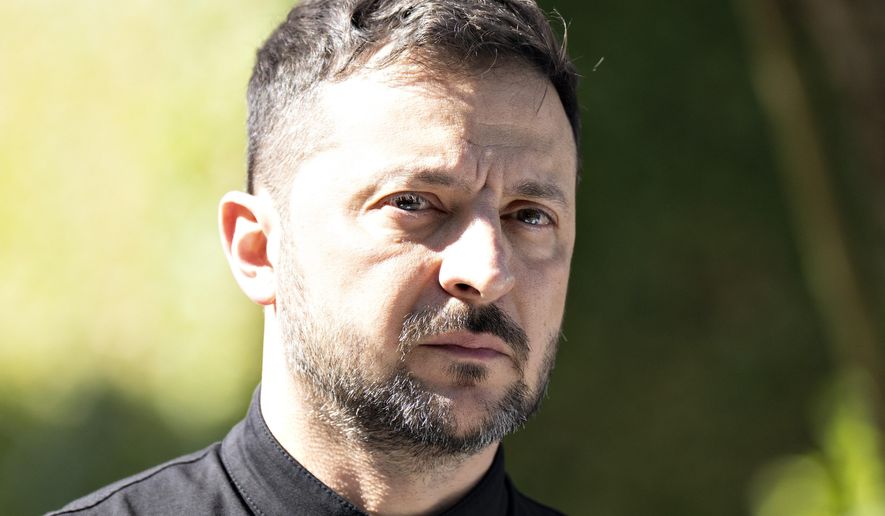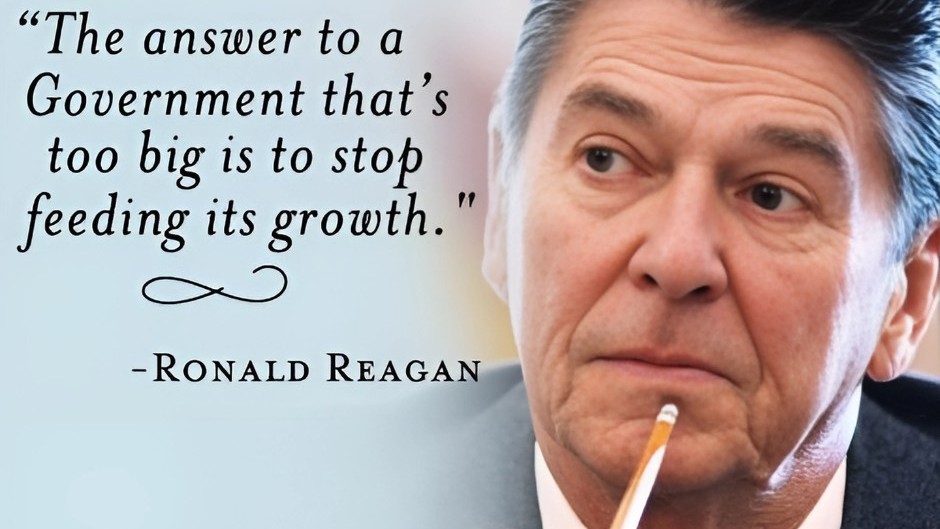Administration Now Focused on Investment, Business Deals
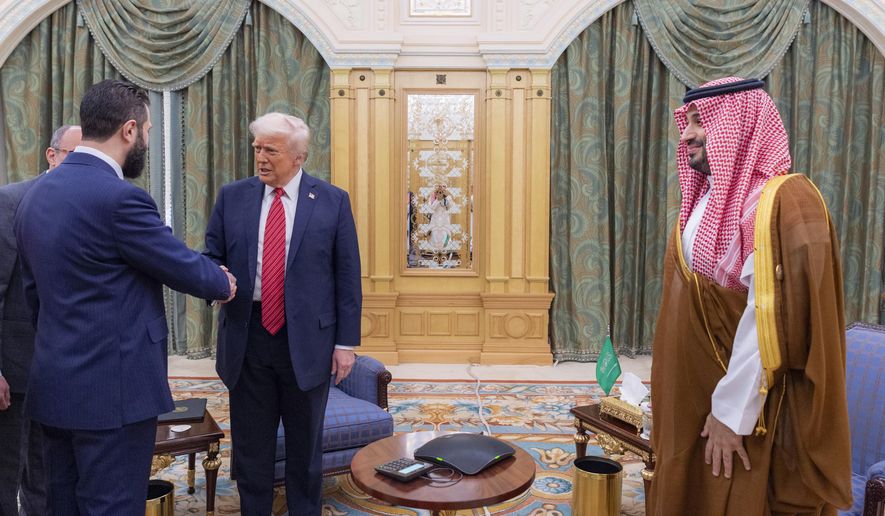
Jeff Mordock | May 14, 2025
(The Washington Times) — President Trump kicked off his Middle East trip Tuesday by burnishing his reputation as a dealmaker and establishing a U.S. policy for the region built on economic and investment ties.
The three-day visit to Saudi Arabia, Qatar and the United Arab Emirates is focused on bolstering economic ties. It included a Saudi economic summit with executives from major U.S. companies and Silicon Valley leaders. The visit had been scheduled to be Mr. Trump’s first overseas trip of his second term before Pope Francis’ death necessitated his attendance at the papal funeral in Rome last month.
As part of Mr. Trump’s emphasis on economic priorities in the Middle East, he signed off on part of a series of bilateral deals with $600 billion in investments from Saudi Arabia, which included $142 billion in defense sales. Other U.S.-Saudi economic pledges include $80 billion in technology investments from Google, Oracle, Salesforce, Uber and Saudi companies in both countries, $20 billion in artificial intelligence data centers and $14 billion in gas turbines from GE.
Mr. Trump and Saudi Crown Prince Mohammed bin Salman said the total pledge could swell to $1 trillion.
Yoel Guzansky, a senior research fellow at the Institute for National Security Studies who served on Israel’s National Security Council, said Mr. Trump’s emphasis on economic ties marks a sharp departure from visits by previous presidents who arrived in Saudi Arabia looking to make deals to access its oil in exchange for bolstering security for the kingdom.
“This is a whole different story,” he said. “Nowadays, the U.S. has a lot of oil and now wants economic opportunities for security. Saudi Arabia will invest in the United States, buy our advanced weapons and, in return, will give them all kinds of security guarantees.”
Since arriving in the Middle East, Mr. Trump has made it clear that he is all about dealmaking.
He has departed from the tradition of U.S. presidents hectoring Middle Eastern leaders over perceived human rights abuses or systems of government. President Biden gave the crown prince a fist bump instead of a handshake after the U.S. intelligence community linked him directly to the murder of Washington Post journalist Jamal Khashoggi in 2018.
“Trump isn’t there to talk about human rights and freedom of the press — all things that countries in the Gulf don’t want to hear. Instead, he’s talking exactly the language they speak: the language of business. I think that’s a win for both sides,” Mr. Guzansky said.
In his remarks Tuesday, Mr. Trump said he was willing to look past such geopolitical concerns and focus on business.
“In recent years, far too many American presidents have been afflicted with the notion that it’s our job to look into the souls of foreign leaders and use U.S. policy to dispense justice for their sins,” Mr. Trump said. “It is God’s job to sit in judgment, my job to defend America and to promote the fundamental interests of stability, prosperity and peace.”
Sen. Bernard Sanders, Vermont independent, was quick to criticize Mr. Trump’s trip as a way for billionaire leaders to enrich themselves at the expense of the working class.
He portrayed the trip as “a meeting of global oligarchs.”
“The top 1% globally owns more wealth than the bottom 95%. But it’s not enough. They want it all,” he wrote on social media.
Before Mr. Trump arrived in the region, some questioned whether his family’s business projects posed a conflict of interest to his ambitious investment goals.
Mr. Trump’s son Eric Trump spoke in the United Arab Emirates last week about the Trump Organization’s plans to build an 80-floor hotel and residential tower in Dubai. He bragged that the tower would have the highest infinity pool in the world and would “redefine luxury.”
Eric Trump and his brother Donald Trump Jr. have appeared at events in the region to finalize deals for cryptocurrency, golf clubs and luxury residential buildings, underscoring the Trump Organization’s push for deals in the Gulf states while Mr. Trump conducts foreign policy.
Ethical concerns rose as the trip began when Qatar announced it was giving Mr. Trump a $400 million Boeing 747 jumbo jet, which would become Air Force One for his term and then be turned over to his presidential library. The plane has been dubbed a “palace in the sky.”
“I think it’s a great gesture from Qatar. I appreciate it very much,” Mr. Trump said from the White House on Monday. “I would never be one to turn down that kind of offer. I mean, I could be a stupid person and say, ‘No, we don’t want a free, very expensive airplane.’ But it was — I thought it was a great gesture.”
The deal drew a raft of criticism from Democrats and even Trump supporters such as conservatives Laura Loomer and Ben Shapiro.
Rep. Ritchie Torres, New York Democrat, described the deal as a “flying grift.” He said it violates the Constitution’s ban on anyone holding federal office from accepting gifts from foreign governments.
Ms. Loomer criticized Qatar’s financial support of Iranian proxies such as Hamas and Hezbollah.
“This is really going to be such a stain on the [administration] if true. And I say that as someone who would take a bullet for Trump. This is so disappointing,” she wrote on X.
The investment push has met economic headwinds under Mr. Trump’s tariff plans, which have disrupted global trade, confidence and the U.S. economy. However, much of the chaos caused by the tariff plan subsided after Mr. Trump backed off his initial proposal of steep levies on nearly all U.S. trading partners. In the past week, Mr. Trump has struck trade deals with China and Britain, prompting the stock market to surge and regain some of the losses it experienced after the April 2 tariff announcement.
Saudi Arabia’s sovereign wealth fund, the Public Investment Fund, controls roughly $925 billion and already has numerous investments in the U.S. These include Uber, gaming firm Electronic Arts, and electric vehicle company Lucid.
Meanwhile, the United Arab Emirates has already committed to investing $1.4 trillion in the U.S. over the next decade in sectors such as artificial intelligence, semiconductors, energy and manufacturing. The investment commitment was announced in March after Sheikh Tahnoon bin Zayed al Nahyan, UAE national security adviser, met with Mr. Trump in Washington.
The UAE and Saudi Arabia have been pumping billions of dollars into the tech and AI sectors to diversify their economies away from oil. Mr. Trump has been eager to accommodate that ambition.
Last week, the Trump administration rescinded a Biden-era regulation that restricted the export of advanced U.S. computer chips to more than 120 countries, including the Gulf states. The Biden administration feared the countries would share the chips with rivals such as China, Russia and North Korea.
The Trump administration is expected to draft rules allowing direct negotiations with countries such as the UAE for computer chips.
Meanwhile, Saudi Arabia is trying to court U.S. investment in its ambitious Vision 2030 program, a massive construction project that would include a linear city called The Line. It is also pouring money into entertainment, tourism, mining and sports investments, such as the LIV Golf League.
Foreign direct investment in Saudi Arabia declined for a third straight year in 2024, and the drop in global oil prices has increased pressure on the kingdom to cut spending or increase its debt.







